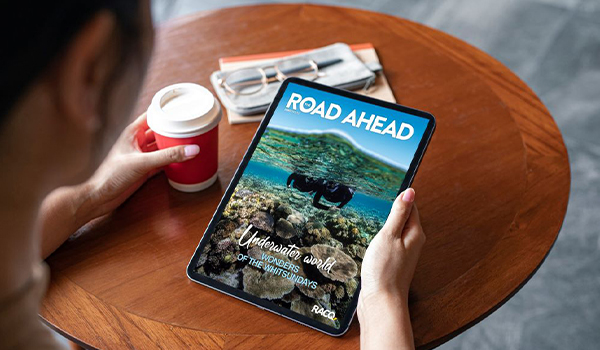The latest from RACQ
-
News
-
Car
-
Home
-
Travel
-
The Road Ahead
x
x
x
The Road Ahead magazine
The Road Ahead is Queensland’s most circulated magazine, delivering news, travel, lifestyle and motoring articles straight to your home, business or inbox every quarter.
Plus, our members get access to all the member benefits, discounts and competitions featured in the magazine.
You can read the print or digital version of The Road Ahead, it’s up to you. Our user-friendly digital version has recently had a revamp, moving away from the static flip-book style to a dynamic web-like experience. You can also check out past editions or use the search function to look up articles of interest.
